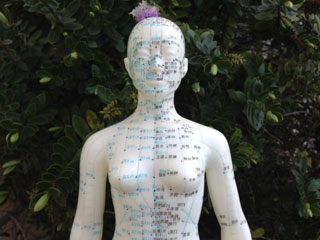Chinese Medicine and Mainstream Medicine

Acupuncture has seen its undo share of naysayers. In the face of overwhelming clinical and laboratory studies showing the benefits of acupuncture, skeptics assert that existing research is inconclusive and more research is needed. This is reminiscent of politicians establishing a blue ribbon panel to study a problem to stall immediate action. People are suffering now and the benefits of acupuncture have been established.
Major universities and government research centers have published reams of data showing that acupuncture is effective for the treatment of many disorders including lower back pain, asthma, migraines, knee pain and essential tremor disorders. Clinical studies from well respected US hospitals and medical centers worldwide have also published extensively on the benefits of acupuncture for the treatment of pain, numbness, dizziness, nausea and the side effects of chemotherapy. At the Healthcare Medicine Institute (HealthCMi), the news division reports on the latest acupuncture research on a continual basis.
A great body of research concludes that acupuncture has significant clinical benefits. Nonetheless, many of the study designs are inherently stacked against a positive outcome. Despite these odds, acupuncture shines as an important and cost-effective therapeutic modality. Placebo investigations often build-in a very weak treatment protocol to maintain the double-blind placebo design. The arrival of de qi is usually not present in these trials nor are standard needle manipulation procedures. Many of these investigations involve tapping pre-placed needles mounted within styrofoam blocks such that they barely enter the skin. The proper angle of insertion, needle gauge and length, depth of insertion and retention time are not customized. This disempowers the ability of the acupuncture needle to homeostatically balance the parasympathetic and sympathetic nervous system responses. This, in turn, prevents the activation and deactivation of the brain centers necessary to engage the endocrine system to heal the body in response to the acupuncture needle stimulation.
The drive to develop double-blind placebo controlled trials, however well-intentioned it may be, to test the efficacy of acupuncture is as unusual as developing the same for surgical procedures. Acupuncture is a highly skilled medical procedure performed by licensed acupuncturists who have spent many years developing their needle insertion techniques.
Outcome based medicine is a better measure and the studies that survey the clinical results of acupuncture demonstrate a clear pattern of cost-effective results. Placebo comparative studies, however supportive, simply do not reflect a standard acupuncture procedure in a clinical setting and therefore inherently skew results negatively. In double-blind placebo studies, acupuncture faces an uphill battle to prove itself. Yet, that is precisely what happens. Under the most restrictive circumstances bent on disproving acupuncture as an important therapeutic modality, acupuncture shines through with significant clinical benefits to patients.
Differential diagnostics and customization of every treatment has long been the accepted standard of care within acupuncture. A great master once noted that every area of the body is an acupuncture point, however, we do not list many areas as acupuncture points because we have not yet discovered their clinical benefits. The idea that non-acupuncture points, known as sham points, can be studied against true acupuncture points runs into the problem of comparing unknown areas with known areas. A true measure would be to choose two known areas, one that definitely will not work against one that is traditionally designated as functional in treating a specific ailment. This is a difficult task in that it first must be proven that the sham point is completely ineffective prior to choosing it for the study.
The politics are also very interesting. I have noticed a disturbing trend amoung acupuncture skeptics. They have a tendency to be employed by medical organizations and educational facilities that receive money for conventional medical procedures. I give them the benefit of the doubt. Perhaps they are not paid to skew results, at least not in the intentional sense. Yet, their funding is driven by an industry better served without complementary and integrative medicine. Ultimately, they are surrounded by fellow skeptics that support ethnocentric and exclusionary medicine.
It reminds me of what a solar scientist told me about his confrontation with politically driven oil men in the 1970s. It wasn’t that the oil men wanted to drive him out of the Department of Energy for monetary purposes. The oil men genuinely thought of the solar scientist as a whack-o that was wasting taxpayer dollars on some type of radical offbeat technology that will never work. The oil men held a sincere perspective but it was not correct. It turns out that a variety of alternative energy sources have tremendous potential. Alternative medicine holds the same promise. Acupuncture, with well over a thousand years of documented clinical successes, holds both potential and a fully actualized history of significant medical outcomes.


